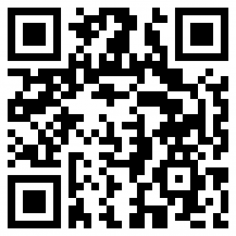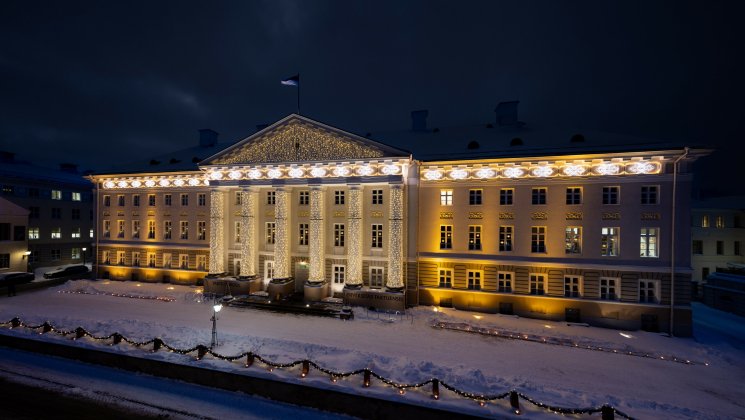Information regarding the war in Ukraine
Since the outbreak of the war in Ukraine, the University of Tartu has been actively supporting its Ukrainian staff and students and preparing for the reception of refugees from Ukraine.
- 292 Ukrainian students are studying at the University of Tartu in the 2023/2024 academic year.
- The senate created the possibility for Ukrainian students to apply for a need-based special allowance in 2022.
- The university established a scholarship fund to collect and channel donations to support Ukrainian students' studies at the University of Tartu. We invite the entire university family to donate for Ukrainian students and share the word about the fund.
Current students and staff of UT
The university offers support to its members during difficult times. The following list will be updated as new opportunities become available.
- Students receive psychological support from the university's Counselling Centre. Counselling is available in Estonian, English and Russian. Read more and book an appointment on the Counselling Centre website.
- University staff can get psychological support from staff Counsellor-Chaplain Tõnu Lehtsaar at tonu.lehtsaar@ut.ee. You may contact him in Estonian, English and Russian.
- Information on other counseling opportunities can be found on the university's website.
- We are a large university family, so there may be people around us who are very closely and personally affected by what has happened. In this situation, one way how we can help is to notice another person's concern and offer first psychological support.
Holders of temporary protection can apply for a need-based scholarship.
Estonian universities have decided to halt cooperation with Russian and Belarusian universities. This concerns institutional cooperation between universities. The International Cooperation and Protocol Office compiles information on ongoing cooperation projects and organises the information of partner universities.
On 7 March 2022, the University of Tartu decided that citizens of the Russian Federation and Belarus can submit applications for first and second-level programmes offered in the academic year 2022/2023 only if they hold a residence permit or long-term visa of the European Union or are currently studying in Estonia.
Arrival in Tartu
Ukrainian citizens can travel to Estonia without a visa, including those who do not have a biometric passport or a Schengen visa. However, you need to follow the orders given by Ukraine, so please consult with your local authorities first to find out what documents you need to cross the Ukrainian border.
Upon arrival in Estonia, please apply for temporary protection (which gives you a one-year residence permit) as soon as possible at the Police and Border Guard Board office.
For the latest updates regarding the arrival and stay of Ukrainians, Estonian public services, etc., see information for Ukrainians.
Please contact first the Tartu Welcome Centre for assistance with administrative formalities.
- The City of Tartu provides practical guidance for people arriving from Ukraine.
If you want to apply for an academic position at the University of Tartu, please write to ukraine@ut.ee.
See more:
- Academic job opportunities at European research institutions
- All job opportunities in Estonia, incl. support staff positions
- Estonian Labour Inspectorate information sheets for Ukrainians arriving from Ukraine
General information
- For Ukrainian university members, the first point of contact emergencies is the Head of International Cooperation Kristi Kerge (+372 529 7677). Please send written enquiries to ukraina@ut.ee.
- People arriving from Ukraine are kindly asked to contact the Tartu Welcome Centre for assistance with administrative formalities.
- The City of Tartu provides practical guidance for people arriving from Ukraine.
- MTÜ Ukraina Maja (NGO Ukrainian House) brings together the Ukrainian community in Tartu and elsewhere in Estonia, and helps create links between the local and newly arrived Ukrainians. The NGO provides information support to the Ukrainian community in Estonia, and coordinates cultural and social initiatives aiming to support Ukraine and Ukrainians.
- Please send media enquiries to avalik@ut.ee.
Victims of war can be supported through a number of initiatives.
- Making donations.
The University of Tartu scholarship fund collects donations to support the studies of Ukrainian students. You can donate via ut.ee/donate or by scanning the QR code below.

- At ukrainaheaks.ee you can make a donation to help Ukrainians.
- On the page Come Back Alive, you can support the Ukrainian army.
- On the page Voices of Children, you can support affected children.
- Humanitarian aid and helping refugees.
If you want to help the people of Ukraine, you can call the state helpline 1247 (when calling with an international calling card: +372 600 1247).
Information on how to provide assistance to the people of Ukraine has been gathered on the website of the city of Tartu.
Through Estonian Refugee Aid, you can support the provision of humanitarian aid in Ukraine.
As a public initiative and with the help of the employees of the Faculty of Arts and Humanities, a Facebook group "AITAN KAITSTA – teeme koos varjevõrke" (HELP PROTECT – weaving camouflage nets together) has been set up. The initiative aims to organise a nationwide campaign to produce camouflage nets for the Ukrainian Armed Forces.
Estonian universities have decided to halt cooperation with Russian and Belarusian universities. The decision concerns institutional cooperation between universities. In the 2023/2024 academic year, citizens of the Russian Federation or Belarus who do not have a residence permit or a long-stay visa of a European Union member state or who are not studying in Estonia are not eligible to apply to the university.
- On 30 July 2022, an amendment to the regulation of the Government of the Republic came into force, restricting Russian citizens from applying for temporary residence permits or visas for studying in Estonia. Previously, the same regulation had also restricted the citizens of Russia and Belarus from obtaining a temporary residence permit or a visa for employment or business activity in Estonia. As an exception, the residence permits of students who are due to complete their studies at an Estonian institution of higher education will be extended for one year. Further information.
- On 30 March 2022, a webinar "Ukrainian Cities at War: From Conspiracy Theories to New Urban Realities" took place on Worksup. Watch the recording. This continued the Ukraine-related discussion that started at the fundraising event on 24 March. The webinar series about Ukraine goes on until the end of May. Everybody is welcome to listen and think along.
- On 27 April, a webinar on Ukrainian language and culture took place on Worksup. Watch the recording.
- European cooperation for developing Ukraine’s education system continues, defying military action
- Article by Vice Rector for Academic Affairs Aune Valk
- The University of Tartu Senate’s address to the people of Ukraine
- Public address (in Estonian) by the Department of Slavic Studies
- A list of reliable information channels compiled by researchers of the University of Tartu Institute of Social Sciences
- Antiwar declaration (in Russian) from the participants of the international congress "Juri Lotman's semiosphere"
- An appeal by The Guild network to European governments and the European Union
- A statement by the University of Tartu Johan Skytte Institute of Political Studies
- Rector Toomas Asser's address to the Ukrainian members of the university and the entire university family
For updates on the security situation, see the website of the Ministry of Foreign Affairs. For information about how to help the Ukrainian people, call the state information line 1247.
Please send media enquiries to avalik@ut.ee.



